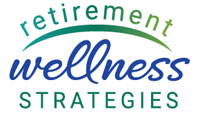Now we turn to end-of-life care. Last blog we talked about the U-turns available in your life and health. These can help you feel better and live healthier. We learned you can still make changes that have a positive impact on your overall health.
What about when a U-turn is not available?
What about when you get that diagnosis of:
- end stage cancer that can’t be treated
- end stage COPD
- end stage heart failure
- dementia
The U-turn is not available.
We can’t stop it. We won’t be able to turn it around. There are a number of conditions that at this moment have no cure or way to get rid of them.
When we run out of options, then the end of life becomes our focus. This is peaceful for some. It is frightening and a huge struggle for others. It impacts not only the person diagnosed but also all of their friends and family. Each person involved deals with a number of feelings during this time. There can be guilt, fear, conflict, regret, and grief, among others.
The support of others, education about what is happening, and sources of comfort are critical.
Resources for end-of-life
Following are some resources for everyone involved in end-of-life care.
- Support groups – There are support groups for most common diagnoses, for people with the diagnosis and for caregivers and family members, and for various stages of the condition.
- Caregiver stress and burden – Caring for a loved one near the end of life can be emotionally and physically exhausting. There are many resources that provide assistance (such as in-home care agencies) or respite (short term stays while the caregiver takes a break).
- Caregiver care – A caregiver can’t fully care for their loved one if they don’t also take care of themselves. Emotional, physical, and spiritual health need attention during this demanding time.
- Resources – Your community will have various agencies available to provide numerous sources of help. These include direct healthcare, legal guidance, financial aid, spiritual support, placement options, and more. If the person nearing end-of-life is over age 65, your local Agency on Aging could be a valuable source of lists of the resources available in your area.
- Palliative care – This is care that is focused on comfort and support to accomplish goals toward the end of life.
- Hospice is one form of palliative care. Your hospice organization can support you, provide education about current and future changes, and help you with preparation for all involved.
When the end-of-life can be anticipated (vs suddenly taken), there is an opportunity to prepare and fully live those final months or days.
For more information about end-of-life options, contact us at www.medsmash.com.
If you would like further application, check out my personal blog.

